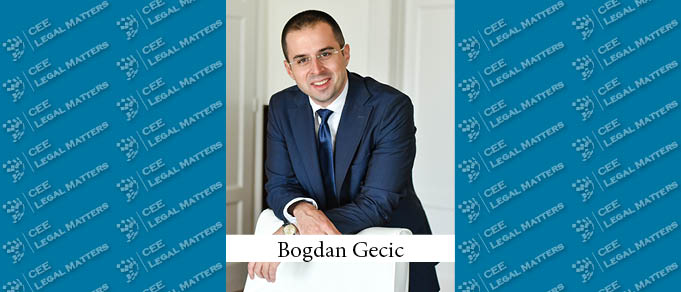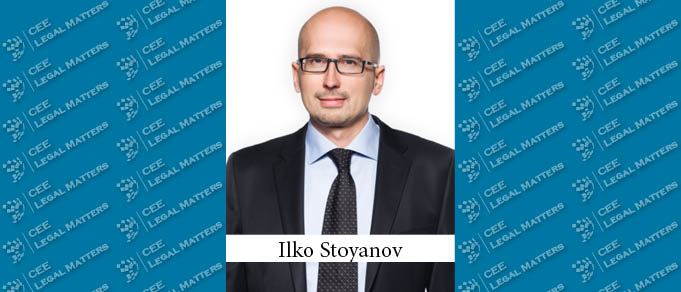On 26 July 2023, the Serbian National Assembly adopted amendments to the Law on financial support for families with children.
Transposition of EU Restructuring / Second Chance Directive in Bulgaria: Problems with New Ipso Facto Prohibitions Under Commercial and Financial Transactions
"Bulgaria transposed the Restructuring Directive's prohibition to terminate contracts via ipso facto clauses, but also (deviating from the Directive) prohibited contractual set-off in restructuring, thus rendering the preservation of many contracts performed via contractual set-off / netting of payment meaningless. So, in drafting ipso facto clauses the impossibility to perform contracts in restructuring, due to the contractual set-off prohibition, may be utilised as an additional trigger for termination, now".
Digital Services Act Takes Effect on Large Platforms
August 25, 2023, marks a monumental shift as the Digital Services Act (“DSA“) takes center stage, impacting industry giants like Amazon, Google, Apple, and TikTok. With 19 platforms and search engines, each having a minimum of 45 million users, the DSA takes action to uphold data privacy, combat disinformation, and eliminate online hate speech. This dynamic legislation aims to give users, including minors, enhanced rights and control over their online presence, fostering a high level of privacy and security.
New EU Regulation to Fight Global Deforestation
On 29 June 2023, Deforestation-free Products Regulation ((EU) 2023/1115) entered into force with the aim of minimising the EU’s contribution to deforestation and forest degradation worldwide. Combating deforestation and forest degradation constitutes an important part of the package of measures needed to reduce greenhouse gas emissions and global biodiversity loss.
New Rulebook on the Content of the Business Entities Register and Documents Required for Registration
The new Rulebook on the Content of the Business Entities Register and Documents Required for Registration (RS Official Gazette No. 63/23) (hereinafter: "New Rulebook") has entered into force on August 5, 2023, thereby ceasing to be valid Rulebook on the Content of the Business Entities Register and Documents Required for Registration (RS Official Gazette, No. 42/2016) (hereinafter: "Previous Rulebook").
New Czech Cybersecurity Regulation: What You Need to Know
Does your business produce computers or other electronic or electrical equipment? Maybe you make machinery and equipment, pharmaceuticals, medical devices or food? Do you have 50 or more employees? Then your company is likely to be subject to the new cybersecurity regulations. The same applies if your activities are in the chemical industry or you provide a variety of digital services – for instance cloud computing, data centre services or online marketplaces.
Judgment on Copyrighting Generative AI
In the ever-evolving world of technology, the boundaries of law are constantly being tested. With the most recent developments in generative AI (artificial intelligence – language and diffusion models), the boundaries of IP law are being tested to their absolute limits. A recent ruling by the United States District Court has brought to light a significant issue that could have implications everywhere in the world, across the spectrum of creative and knowledge industries.
Can the Employer Expand the Employees' Duties Without Changing the Job Description in Hungary?
The position and tasks of the employee are one of the key elements of the employment contract and are typically recorded in the job description. It is often a matter of dispute between the parties whether the employer can unilaterally modify the job description at all, and if so, to what extent. In a recent court decision, a Hungarian appellate court addressed the above question in a situation where the employer supplemented the employee's tasks with new tasks similar to his existing tasks. In this article, we analyse the recent decision on this matter.
Redefining Montenegrin Spatial Planning and Construction Regulations
Montenegro intends to implement a profound shift in its spatial planning and construction regulations with the pending adoption of three distinct legal acts that will regulate the country’s spatial planning, the construction of facilities, and legalisation procedures.
Ukraine Regulates the Registration of Foreign Branches and Representative Offices
On 11 August 2023, the government bill No.4482 adopted by the Ukrainian Parliament, which amends certain legislative acts of Ukraine regulating the activities of separate subdivisions of a legal entity established under the legislation of a foreign state, was sent for signing to the President of Ukraine ("Draft Law").
The Four-Day Working Week – A Genuine Possibility or Just a Passing Whim?
From time to time, there’s news of companies introducing four-day work week. Magyar Telekom has been mentioned several times as the first big fish to do so, but Libri, too, has apparently done the same, as have various local subsidiaries of foreign parent companies. The obvious question is whether this option is available to everyone and, if so, at what price.
EU’s Carbon Border Adjustment Mechanism: Key Considerations for Non-EU Producers and Importers
The European Union has initiated the world’s first carbon border tax, known as the Carbon Border Adjustment Mechanism (CBAM), in a strategic move to tackle the mounting concerns of climate change.
The Rules of the Withdrawal of Lands from Agricultural Use Have Changed
A new law amending certain acts concerning the functions of the Minister of Agriculture amended a number of agricultural acts as of 1 July 2023, including Act on the Protection of Agricultural Land.
New Proposal of the Law on the Management of Enterprises Owned by the Republic of Serbia
On 03 August 2023, the Government of the Republic of Serbia passed on a new Proposal of the Law on the Management of Companies Owned by the Republic of Serbia (hereinafter referred to as: "Proposal").
Liberalization of Rules for Residency and Work of Foreigners in the Republic of Serbia
Amendments to the Law on Foreigners (Official Gazette of RS no. 24/2018, 31/2019 and 62/2023) and the Law on Employment of Foreigners (Official Gazette of RS no. 128/2014, 113/2017, 50/2018, 31/2019 and 62/2023) (“the Laws”) were published in the Official Gazette of the Republic of Serbia no. 62/2023 of July 27, 2023, and entered into force on August 4, 2023.
Three Things That Are Good to Know About Employing Third-Country Nationals in Hungary
With the hiring of third-country nationals becoming ever more prevalent on the Hungarian job market in recent years, the number of problematic employment cases is on the rise.
Bulgaria Soon to Adopt an FDI Screening Regime
Bulgaria is among a minority of EU countries that have not yet adopted a foreign direct investment (FDI) screening regime. This is about to change with the introduction in late June of a bill on the amendment of the Investment Promotion Act, implementing the screening mechanism under Regulation (EU) 2019/452.
The Long-Awaited Amendments of the Law on Foreigners and Law on Employment of Foreigners
The Serbian National Assembly adopted amendments to two key laws regulating the immigration status of foreigners in the Republic of Serbia – the Law on Foreigners and the Law on Employment of Foreigners.
































